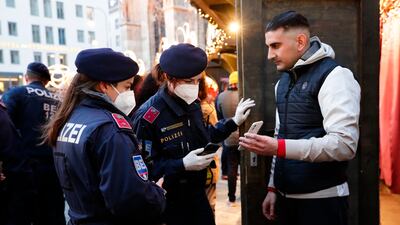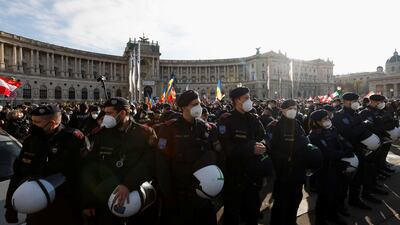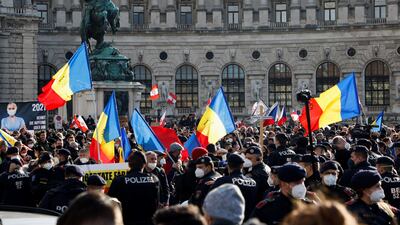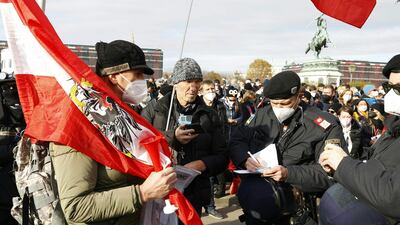The wave of coronavirus washing over Europe has prompted the European Union to update its Covid passport system for travel within and outside the region.
The bloc's Health Commissioner Stella Kyriakides said new travel rules will be adopted this week, with the EU Digital Covid-19 certificate a “meeting point” for co-ordination of travellers' movements inside Europe.
The core of the amended system will see the emphasis shift to travellers' Covid-19 status, rather than the country from which they have travelled.
This means that EU countries will adjust their quarantine policies to target those without a valid EU Digital Covid-19 Certificate.
“We need to avoid fragmentation”, she told the European Parliament, as she previewed the measures.
Unvaccinated EU citizens can still travel
Ursula von der Leyen, president of the EU Commission, has warned of a “pandemic of the unvaccinated”, but the EU is not going down the route of barring its unvaccinated citizens from travelling. Instead test results will offer a second pillar for travellers.
EU officials have been at pains to state there will be no discrimination between the vaccinated and unvaccinated. Instead, a valid negative test uploaded to the EU Digital Covid-19 Certificate will be enough to allow for unrestricted travel.
The new Brussels rules take on this and state essential workers' quarantine rules will be toughened. Previously essential workers have been allowed to skip quarantine, but the bloc will seek to end these exemptions.
Elsewhere, the EU-wide consensus for a more liberal approach may yet be at odds with some of its most prominent members, which are prioritising a rapid expansion of overall vaccination rates as opposed to the level of infections.
Germany is battling a spike in infections having recently announced that people from Belgium, Ireland, Greece and the Netherlands who are not vaccinated or recovered from the virus will have to self-isolate upon arrival,
Locked-down Austria is imposing fines of up to 3,600 euros ($4,058) on those who refuse to get a coronavirus vaccine once mandatory inoculations kick in next year. Leisure travel to the country is banned until December 13.
Prior to the next EU leaders’ summit on December 16-17, EU officials are addressing the issue of vaccine hesitancy and how to combat it. The bloc is hoping the hassle of regular testing to allow travel will spur many currently unvaccinated citizens to get a jab.
Covid booster shots weighed
Scientific evidence suggests vaccines offer waning protection after six months. The new updates to the EU Covid digital pass will take into account people who have received their booster shots.
New EU travel rules aren't binding
The commission’s proposals on non-essential travel are not binding for member states.
Currently, countries can require quarantine or testing if people come from an area with a high enough infection rate, and can impose stricter restrictions on people travelling to or arriving from areas coded “dark red” on the EU’s common map.
The framework will lay out recommendations for approaching travel from outside the EU. Rules for access to restaurants and public events are set by national governments.
























